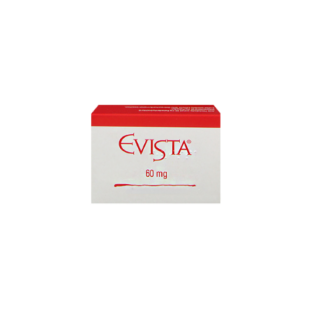- Your cart is empty
- Continue Shopping
What should I tell my health care provider before I take this medicine?
They need to know if you have any of these conditions:
abnormal vaginal bleeding
blood vessel disease or blood clots
breast, cervical, endometrial, ovarian, liver, or uterine cancer
dementia
diabetes
gallbladder disease
heart disease or recent heart attack
high blood pressure
high cholesterol
high level of calcium in the blood
hysterectomy
kidney disease
liver disease
migraine headaches
stroke
systemic lupus erythematosus (SLE)
tobacco smoker
an unusual or allergic reaction to estrogens, other hormones, medicines, foods, dyes, or preservatives
pregnant or trying to get pregnant
breast-feeding
How should I use this medicine?
Take this medicine by mouth. To reduce nausea, this medicine may be taken with food. Follow the directions on the prescription label. Take this medicine at the same time each day and in the order directed on the package. Do not take your medicine more often than directed.
Contact your pediatrician regarding the use of this medicine in children. Special care may be needed.
A patient information sheet will be given with each prescription and refill. Read this sheet carefully each time. The sheet may change frequently.
Overdosage: If you think you have taken too much of this medicine contact a poison control center or emergency room at once.
What if I miss a dose?
If you miss a dose, take it as soon as you can. If it is less than four hours to your next dose, take only that dose and skip the missed dose. Do not take double or extra doses.
What may interact with this medicine?
Do not take this medicine with any of the following medications:
aromatase inhibitors like aminoglutethimide, anastrozole, exemestane, letrozole, testolactone
This medicine may also interact with the following medications:
carbamazepine
certain antibiotics used to treat infections
certain barbiturates or benzodiazepines used for inducing sleep or treating seizures
grapefruit juice
medicines for fungus infections like itraconazole and ketoconazole
raloxifene or tamoxifen
rifabutin, rifampin, or rifapentine
ritonavir
St. John’s Wort
warfarin
This list may not describe all possible interactions. Give your health care provider a list of all the medicines, herbs, non-prescription drugs, or dietary supplements you use. Also tell them if you smoke, drink alcohol, or use illegal drugs. Some items may interact with your medicine.
What should I watch for while using this medicine?
Visit your doctor or health care professional for regular checks on your progress. You will need a regular breast and pelvic exam and Pap smear while on this medicine. You should also discuss the need for regular mammograms with your health care professional, and follow his or her guidelines for these tests.
This medicine can make your body retain fluid, making your fingers, hands, or ankles swell. Your blood pressure can go up. Contact your doctor or health care professional if you feel you are retaining fluid.
If you have any reason to think you are pregnant, stop taking this medicine right away and contact your doctor or health care professional.
Smoking increases the risk of getting a blood clot or having a stroke while you are taking this medicine, especially if you are more than 35 years old. You are strongly advised not to smoke.
If you wear contact lenses and notice visual changes, or if the lenses begin to feel uncomfortable, consult your eye doctor or health care professional.
This medicine can increase the risk of developing a condition (endometrial hyperplasia) that may lead to cancer of the lining of the uterus. Taking progestins, another hormone drug, with this medicine lowers the risk of developing this condition. Therefore, if your uterus has not been removed (by a hysterectomy), your doctor may prescribe a progestin for you to take together with your estrogen. You should know, however, that taking estrogens with progestins may have additional health risks. You should discuss the use of estrogens and progestins with your health care professional to determine the benefits and risks for you.
If you are going to have surgery, you may need to stop taking this medicine. Consult your health care professional for advice before you schedule the surgery.
What side effects may I notice from receiving this medicine?
Side effects that you should report to your doctor or health care professional as soon as possible:
allergic reactions like skin rash, itching or hives, swelling of the face, lips, or tongue
breast tissue changes or discharge
changes in vision
chest pain
confusion, trouble speaking or understanding
dark urine
general ill feeling or flu-like symptoms
light-colored stools
nausea, vomiting
pain, swelling, warmth in the leg
right upper belly pain
severe headaches
shortness of breath
sudden numbness or weakness of the face, arm or leg
trouble walking, dizziness, loss of balance or coordination
unusual vaginal bleeding
yellowing of the eyes or skin
Side effects that usually do not require medical attention (report to your doctor or health care professional if they continue or are bothersome):
hair loss
ncreased hunger or thirst
ncreased urination
symptoms of vaginal infection like itching, irritation or unusual discharge
unusually weak or tired
Where should I keep my medicine?
Keep out of the reach of children.
Store at room temperature between 20 and 25 degrees C (68 and 77 degrees F). Keep container tightly closed. Protect from light. Throw away any unused medicine after the expiration date.
Additional Information
| MG | 2mg, 1mg |
|---|---|
| Pills | 360 pills, 270 pills, 180 pills, 120 pills, 90 pills, 60 pills, 30 pills |









Reviews
There are no reviews yet.